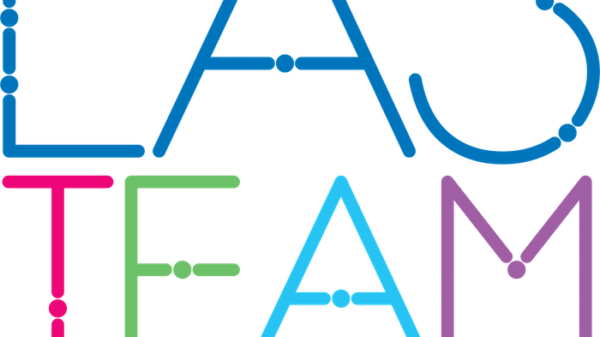New America Media, News Report, Elena Shore
SAN JOSE, Calif. – Adrian Avila plans to apply for citizenship for one major reason.
“I’m doing it for my mother,” says Avila.
Avila, a content producer at the bilingual magazine Silicon Valley De-Bug in San Jose, came to the United States with his mother when he was six years old.
Now 29, he is one year younger than his mother was when she decided to leave everything behind in Mexico to build a better life for her son in the United States.
Today, Avila wants to give something back to her: he plans to apply for citizenship so that he can petition for his mother to become a U.S. citizen.
Taking the step to naturalize will also allow him to vote, travel freely, be protected from deportation, live without fear and advocate more effectively for his rights.
But ultimately, he says, his reason for applying for citizenship is not just about himself.
“It always comes down to my mother,” he explains.
Avila spoke recently in San Jose to more than 20 media representatives at the first ethnic media roundtable of the New Americans Campaign, a national initiative to encourage eligible Legal Permanent Residents to apply for citizenship. The meeting, organized by New America Media, brought together leaders of Chinese, Filipino, Indian, Korean, Latino, Vietnamese and other local media outlets to discuss how they could address the barriers that keep many eligible immigrants from applying for U.S. citizenship.
Why aren’t more people applying for citizenship?
More than eight million immigrants across the United States have green cards and are eligible for U.S. citizenship. Yet only 8 percent of them become citizens each year, according to Vanessa Sandoval, immigration legal services program director of Services, Immigrant Rights and Education Network (SIREN) in San Jose.
“That means 92 percent [of eligible immigrants] aren’t,” said Sandoval. That, she said, means they aren’t voting. They are limited in their Supplemental Security Income. If they leave the country for six months, they might not be let back in. And they could even be vulnerable to deportation.
In Santa Clara County alone, an estimated 190,000 Legal Permanent Residents are eligible for naturalization. Yet an average of only 14,597 take the step to naturalize each year, according to Sandoval.
That’s why SIREN and other local groups are organizing free citizenship workshops where Legal Permanent Residents can get help processing their applications.
Many green card holders, organizers say, are held back by a number of barriers, such as financial and language barriers.
“What we aim to do is reduce these barriers,” explained Bea Pangilinan, staff attorney with Asian Law Alliance.
For example, it costs $680 to file for citizenship. But many immigrants may not know that if their income falls below poverty level, they qualify for a fee waiver.
Those who don’t speak English well may think that limits their chances of becoming a citizen. But if they have been here for many years, they can qualify to take the exam in their native language – something that many immigrants may not be aware of.
And if they do need to take the exam in English, said Pangilinan of the Asian Law Alliance in San Jose, “We give them the confidence and tell them they just need to practice.”
But some of the biggest obstacles to applying for citizenship may be psychological.
“Another barrier is a general fear,” said Pangilinan. “They don’t know what to expect. They don’t know what documents they are supposed to produce.”
Amir Music of International Rescue Committee says he has seen many immigrants who have lived for 20 or 30 years as Legal Permanent Residents but never applied for citizenship.
“The biggest challenge,” Music said, “is lack of information.”
The power of ethnic media
Weiwei Ren, senior reporter for the Sing Tao Daily, said that many people in her community don’t have enough information about who is eligible to apply for citizenship. Many older people who live in Chinatown and don’t speak English rely on Chinese-language newspapers for this kind of information, she said.
Organizers said the media that serve immigrant communities could play a crucial role in closing this gap — informing their audiences about the value of becoming a U.S. citizen, and the free resources available to Legal Permanent Residents through the New Americans Campaign.
The key, said Hilbert Morales, publisher of the Spanish-language newspaper El Observador, is to take the idea of naturalizing beyond the individual – and show the impact that citizenship can have on the entire community.
“That individual, all alone, feels that he or she has no power,” said Morales. He said ethnic media must inform their audiences that, “in the aggregate, they are more powerful” than the wealthiest person of influence, “because they have a vote.”
“Things get done,” Morales said, “when people who are citizens demand action.”
“The need to become a citizen is extremely important,” agreed Vandana Kumar, publisher of the magazine India Currents. “If you want to look out for yourself and your community, you have to have a seat at the table. Otherwise, you’re on the menu.”
The next free citizenship workshop in San Jose is Jan. 29 at the Berryessa Community Center, 3050 Berryessa Road. Registration is from 2:00 – 4:00 p.m. For more information, call 408-657-6289.
For more information about the New Americans Campaign, go to www.newamericanscampaign.org.
Free Citizenship Workshop in San Jose – Jan. 29, 2014 at the Berryessa Community Center 3050 Berryessa Road, San Jose Registration: 2:00 – 4:00 p.m.
What You Need to Bring To Apply for Citizenship:
• Your green card and social security card
• List of ALL trips you’ve taken since you got your green card
• Family information, including children and spouse (current and former)
• If you have ever been arrested, certificates of disposition for all arrests
• Two passport photos
• Your address and job history for the last 5 years
To apply for a fee waiver:
• 2012 Income Tax or proof of Public Benefits
*If you do not qualify for the fee waiver, the USCIS fee for naturalization is $680, payable to “U.S. Department of Homeland Security.”
For more information, call 408-657-6289.









